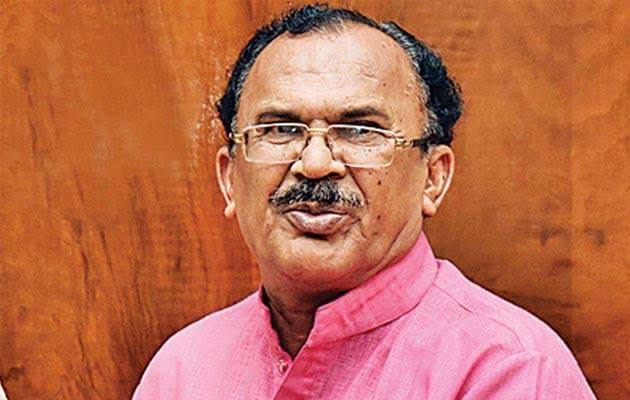
Education is the foundation of human life. It is not merely a tool for employment but the real pillar of values, morality, and the progress of society. A teacher is like a lamp, burning itself to illuminate the lives of others. When I say “I too am a teacher”, it is not just a statement, but a philosophy of life. Throughout my political and public journey, I have believed that at some moment, in some form, every individual becomes a teacher.
The Eternal Role of the Teacher
In Indian tradition, the Guru has always held the highest position. The verse “Guru Brahma, Guru Vishnu, Guru Devo Maheshwarah” reflects the stature of the teacher as creator, preserver, and transformer of life. Yet, my perspective goes beyond the traditional guru. To me, a mother is the first teacher who teaches life’s earliest lessons. A father instills values, a friend guides on the right path, and experiences shape us with lessons—each of them a teacher in their own way. This is why I say, “I too am a teacher”. Every person carries the potential to teach, inspire, and guide others.
Education and Politics – My Lifelong Commitment
Even while being active in Rajasthan’s politics and now serving as Speaker of the Legislative Assembly, I have always kept education at the core of my life. Before entering politics, I myself was a teacher. Later, as Education Minister of Rajasthan on two occasions, I introduced reforms that continue to influence the system today.
I revised curricula to include the lives and lessons of national heroes, saints, and freedom fighters—introducing chapters like Maharana Pratap the Great instead of Akbar the Great, because I firmly believed glorifying invaders dishonored our history. I encouraged Sanskrit as the key to India’s ancient wisdom and promoted technology-driven learning through smart classrooms, e-content, and projector-based teaching. With initiatives like Padho Rajasthan, education was modernized while maintaining discipline, values, and cultural roots.
For me, education is not about securing jobs but about building character. It should cultivate respect for Indian culture while preparing students for global competition.
Teachers as Builders of Society
The words “I too am a teacher” are my guiding mantra. Life itself is the greatest school, and experience is the greatest textbook. Every individual who learns something has a responsibility to share it with society. This outlook makes every person both a learner and a teacher.
Today, when education is often limited to degrees and employment, I strongly believe that education must also instill values and culture. A teacher should not only impart lessons but guide life itself. The ultimate goal of education is holistic development, not merely passing examinations.
National Vision and Relevance
Prime Minister Narendra Modi has often emphasized that education is for life-building, not only for livelihood. The New Education Policy (NEP) reflects this vision by focusing on flexibility, multi-disciplinarity, innovation, and vocational learning. It promotes teaching in the mother tongue, integrating Indian values with modern science and technology.
Even as technology advances, the role of the teacher as mentor and role model remains irreplaceable. A good teacher leaves an imprint on the hearts and minds of students for a lifetime.
Education with Transparency and Integrity
For a nation, education is its backbone. A transparent, fair, and corruption-free system is the key to building trust and ensuring equal opportunities. Corruption in admissions, recruitment, and examinations denies opportunities to deserving students and weakens the nation’s foundation.
The solution lies in digital governance—making admissions, examinations, results, recruitment, and financial transactions fully online and trackable. Policies, budgets, and decisions must be publicly accessible. Strict penalties for malpractices like paper leaks or bribery are essential. Parents, civil society, and local bodies should have participatory roles in school governance. Only then will we develop capable teachers, researchers, administrators, and nation-builders.
A Teacher’s Sensitivity Towards Society
Teachers must remain sensitive to the needs of society. During my teaching career, I often experimented with real-life exposure. Once, I took a group of students to Kotra, a tribal region near Udaipur, asking them to live among villagers for ten days. When they returned, many had tears in their eyes—they had seen poverty beyond imagination. Such experiences built empathy and awareness in young minds.
Another time, while working at Vidya Bhawan Institute, I observed rural women grinding wheat on stone mills, suffering from back pain. Using technical knowledge, we fitted ball bearings to the mills, easing their labor. Later, when women needed coarse flour instead of fine, we added springs to adjust grinding levels. At a time when mixers and grinders were rare, this simple innovation brought immense relief. These experiences taught me that a teacher’s responsibility extends beyond classrooms—to addressing real-life problems with compassion and creativity.
Conclusion
To say “I too am a teacher” is to embrace a philosophy of life. Teaching is not bound by institutions, positions, or salaries—it is a lifelong responsibility. Every moment of guidance, every experience shared, and every solution offered to society is an act of teaching. In truth, every person is a teacher, and every moment is an opportunity to learn and to teach.
The essence of life lies in this realization—that we are all teachers, and by sharing knowledge, values, and wisdom, we can illuminate not only individual lives but the destiny of the nation.